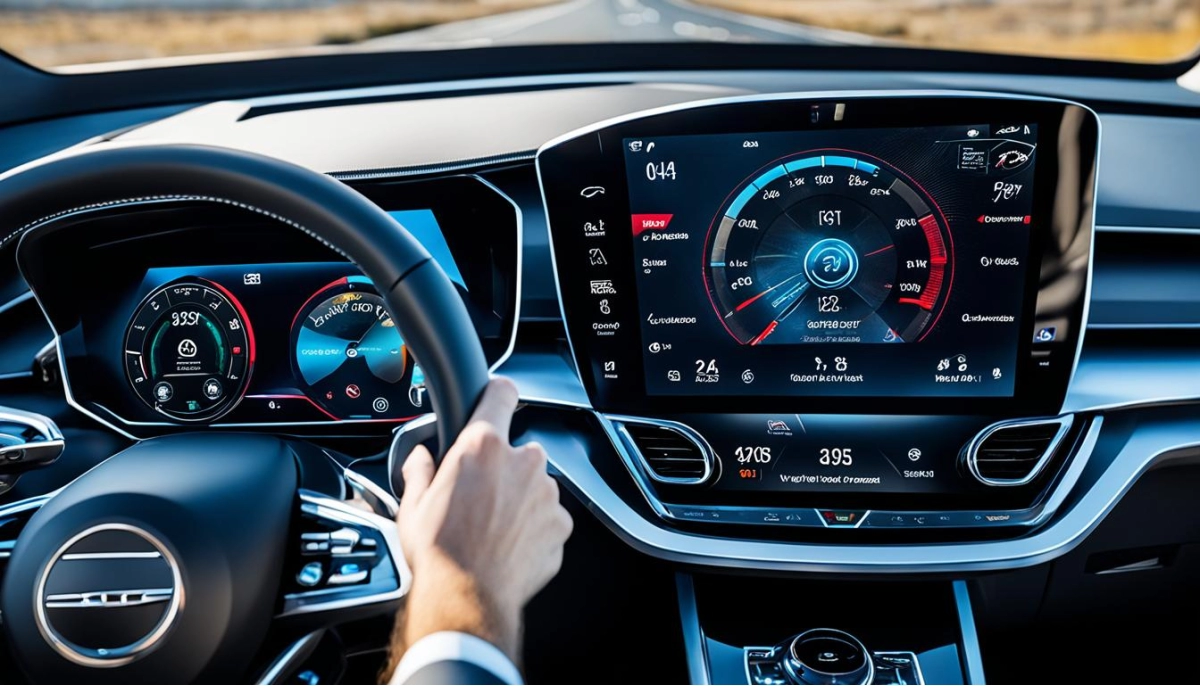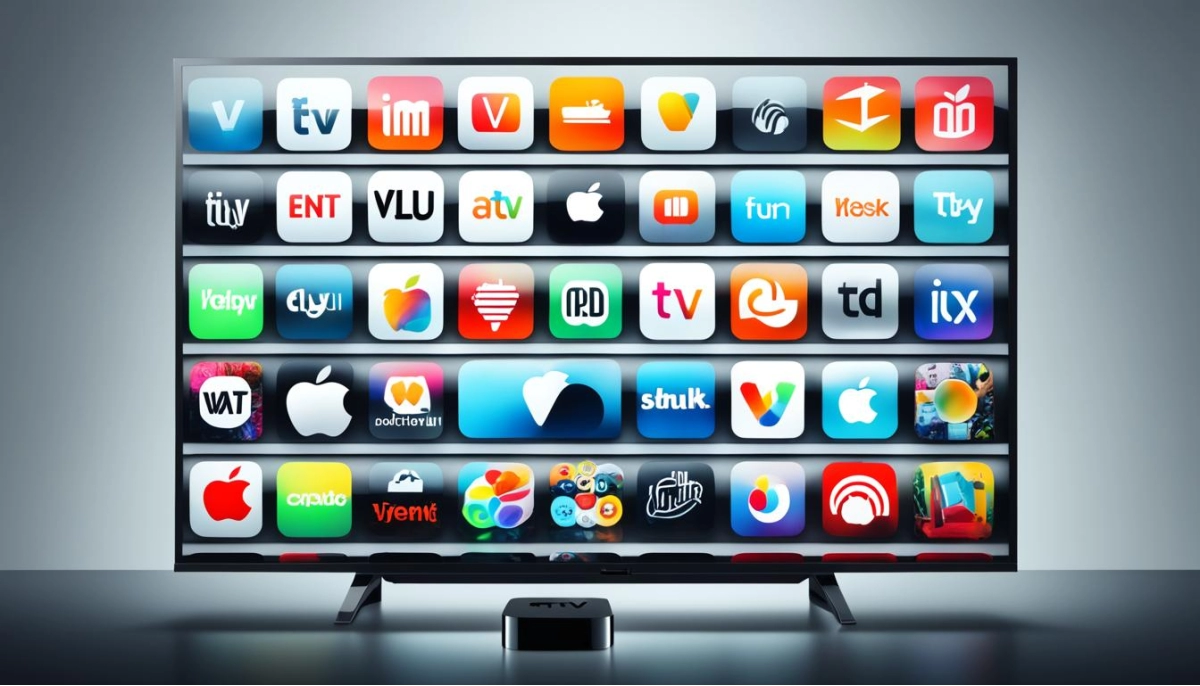What should users look for when selecting a VPN service?

Choosing the right VPN service is crucial for ensuring online security and privacy. With numerous options available, it can be overwhelming to find the perfect VPN that meets your specific needs. To help you make an informed decision, this article will outline the key factors to consider when selecting a VPN service.
When selecting a VPN service, users should prioritize factors such as:
- Security and privacy
- Speed
- Encryption
- Ease of setup and use
- Simultaneous connections
- Number of servers and their locations
- Supported VPN protocols
- Logging policy
- Additional features
- Customer support
By taking these factors into account, you can ensure that the VPN service you choose provides a secure and reliable browsing experience.
Key Takeaways:
- When selecting a VPN service, prioritize factors such as security and privacy, speed, and encryption.
- Ease of setup and use, simultaneous connections, and the number of servers and locations should also be considered.
- Make sure the VPN service supports the VPN protocols you require and has a strict no-logs policy.
- Check for additional features such as ad-blocking, kill switch, and split tunneling.
- Reliable customer support is essential for addressing any technical issues or concerns.
Why do you need a VPN?
Virtual Private Networks (VPNs) have become an essential tool for online safety and security. By creating an encrypted tunnel for your data, VPNs protect your sensitive information from potential cyber threats. This encrypted tunnel also ensures the secure use of public Wi-Fi networks, which are notorious for their vulnerabilities. Using a VPN hides your IP address, making it difficult for hackers or malicious entities to track your online activities.
Additionally, VPNs help bypass online censorship and restrictions imposed by certain governments or organizations. This means you can access blocked websites and content from anywhere in the world. Whether you’re traveling abroad or facing internet censorship, a VPN allows you to maintain your online freedom.
Furthermore, a VPN enables you to access your home network from abroad. This is particularly useful for individuals who work remotely or want to stream content that is only available in their home country. With a VPN, you can securely connect to your home network and enjoy the same level of access and functionality as if you were physically present.
Overall, a VPN provides crucial online safety, privacy, and accessibility benefits. It creates a secure environment for your internet activities, protects your personal information, and ensures unrestricted access to content, regardless of your location.
Determine your VPN needs
When it comes to choosing a VPN, it’s important to consider your specific needs based on your internet usage. Different users have different priorities and requirements, so understanding what functionalities matter most to you will help you find the perfect VPN service. Here are a few scenarios to help you determine your VPN needs:
Casual Internet User
If you’re a casual internet user who mainly uses the internet for browsing, streaming, and social media, your VPN needs may revolve around privacy and security. Look for a VPN service that offers strong encryption and a strict no-logs policy, ensuring that your online activities remain private and anonymous.
Avid Traveler
If you frequently travel and find yourself connecting to public Wi-Fi networks, your top priority may be a VPN service that offers a wide range of servers in various locations. This will allow you to bypass online censorship and access your home network even when abroad, ensuring a secure and unrestricted internet experience.
Gamers
Gamers require a VPN with high-speed performance to minimize lag and ensure smooth gameplay. Look for a VPN service that offers dedicated gaming servers and unlimited bandwidth to guarantee an optimal gaming experience without any interruptions.
Working from Home
If you work from home and handle sensitive company data, your VPN needs might include advanced encryption and a strict no-logs policy. Additionally, check for VPN services that prioritize security features like AES 256-bit encryption, ensuring the confidentiality of your work-related information.
By determining your specific VPN needs based on your internet usage, you can easily narrow down the options and choose a VPN service that aligns with your requirements. Keep these considerations in mind as you explore the various VPN functionalities available in the market.

13 things to consider while choosing a VPN
When it comes to choosing a VPN, there are several important factors to consider. By taking these factors into account, users can make an informed decision and find a VPN service that best suits their needs for security and privacy.
- Security and Privacy: Look for a VPN service that prioritizes security and privacy. Ensure that it offers robust encryption protocols and has a strict logging policy that doesn’t track or store user data.
- Speed: Speed is crucial when it comes to VPN services. Consider a VPN that offers fast and reliable connections, allowing you to browse, stream, and download without lag or buffering.
- Strong Encryption: Check if the VPN uses strong encryption, such as the Advanced Encryption Standard (AES) with a 256-bit encryption key. This ensures maximum privacy and data protection.
- Easy Setup and Use: Opt for a VPN that offers an easy setup process and has a user-friendly interface. This makes it convenient for both beginners and advanced users to get started.
- Simultaneous Connections: Consider how many simultaneous connections the VPN allows. This is important if you plan to use multiple devices or share the VPN with family members.
- Number of Servers: Look for a VPN service that has a wide network of servers in various locations. This ensures better speed and the ability to access geo-restricted content.
- Supported VPN Protocols: Check if the VPN supports various VPN protocols such as OpenVPN, IPSec, or WireGuard. This allows you to choose the most suitable protocol for your needs.
- Additional Features: Consider any additional features offered by the VPN, such as ad-blockers, split tunneling, or kill switch. These features enhance the overall VPN experience.
- Customer Support: Evaluate the customer support provided by the VPN service. Look for options like live chat, email support, or a comprehensive FAQ section to address any concerns.
- Payment Methods: Check the payment methods accepted by the VPN service. Look for flexibility, such as options for credit/debit cards, PayPal, or cryptocurrency.
- Money-Back Guarantee: Consider if the VPN offers a money-back guarantee. This allows you to try the service risk-free and get a refund if it doesn’t meet your expectations.
- Multilingual App: If you prefer using the VPN in a language other than English, ensure that the service provides a multilingual app for a better user experience.

By carefully considering these factors, users can make an informed decision when choosing a VPN that provides the perfect balance of security and privacy, speed, strong encryption, ease of setup and use, simultaneous connections, number of servers, supported VPN protocols, logging policy, additional features, customer support, payment methods, and even a money-back guarantee. With the availability of a multilingual app, users can enjoy the benefits of a reliable VPN service while browsing the internet with confidence.
Security and privacy
When it comes to using a VPN, security and privacy are of utmost importance. VPNs provide a crucial layer of protection by encrypting network traffic and safeguarding your online identity. By routing your internet connection through a secure server, VPNs ensure that your data remains encrypted and inaccessible to malicious entities.
The Importance of Data Encryption
Data encryption is a key feature of VPNs that helps protect sensitive information from unauthorized access. When you connect to a VPN, your data is encrypted using robust encryption algorithms. This encryption makes it nearly impossible for anyone to intercept or decipher your online activities, including your IP address, browsing history, and personal data. This secure tunnel created by the VPN shields you from potential information leakage, ensuring your privacy remains intact.
Free VPNs vs. Paid VPNs
While there are free VPN services available, it is essential to exercise caution when using them. Free VPNs often rely on alternative revenue streams, which may involve selling user data to third parties. This compromises your privacy and defeats the purpose of using a VPN for enhanced security. On the other hand, paid VPNs invest in research and development to offer secure services and prioritize user privacy.
Regular Audits for Privacy and Security
Choosing a VPN provider that conducts regular audits is crucial for ensuring the highest level of privacy and security. Regular audits involve comprehensive assessments of a VPN’s infrastructure, policies, and practices. They provide independent verification of a VPN’s adherence to security standards and reinforce trust in their commitment to protecting user data.
It is essential to prioritize VPN security and privacy to safeguard your online activities and personal information. By choosing a VPN with reliable security features, such as robust data encryption and a strict no-logs policy, you can enjoy a safer and more private internet experience.
Comparison of Free VPNs and Paid VPNs
| Feature | Free VPNs | Paid VPNs |
|---|---|---|
| Data Encryption | Weak encryption or no encryption at all | Strong encryption protocols like AES 256-bit encryption |
| Privacy Policy | May sell user data to third parties | Strict no-logs policy |
| Server Options | Limited server choices | Wide range of servers in multiple locations |
| Customer Support | Basic or no customer support | 24/7 customer support |
| Additional Features | Limited functionalities | Advanced features like split tunneling and ad-blocking |
By investing in a paid VPN service that undergoes regular audits, you can ensure that your data remains secure and your online activities remain private. Prioritizing VPN security and privacy is essential in today’s digital landscape, where information leakage and unauthorized access pose significant risks to your online identity.
Speed
When it comes to choosing a VPN service, speed is a crucial factor to consider. A fast VPN ensures a smooth internet experience, allowing you to browse, stream, and download with ease. Slow VPN connections can lead to frustrating lag, buffering issues, and interrupted online activities.
To ensure optimal VPN speed, it’s important to select a VPN with proven performance. Look for providers that offer high-speed connections, even for distant servers. A reliable VPN service will have a vast network of servers strategically located around the world, allowing you to connect to the nearest server for faster speeds.
Another important aspect to consider is unlimited bandwidth. VPNs with unlimited bandwidth allow for seamless streaming and downloading without any restrictions. With unlimited bandwidth, you won’t have to worry about hitting data caps or experiencing speed throttling.
Remember, internet connection speeds can vary based on various factors, including your location, the quality of your internet service provider, and the server load of the VPN provider. However, investing in a reputable VPN service that prioritizes speed and offers unlimited bandwidth will significantly enhance your online experience.
With a fast and reliable VPN service, you can enjoy lag-free browsing, seamless streaming, and uninterrupted downloads. Say goodbye to buffering issues and slow internet connections!

Benefits of a fast VPN:
- Smooth browsing experience
- Seamless streaming
- Fast downloads
- No buffering issues
- Lag-free gaming
- Secure and private online activities
Features to look for:
- Proven performance and speed
- Vast network of servers
- Unlimited bandwidth
- Low server load
By prioritizing speed and unlimited bandwidth when selecting a VPN service, you can ensure a fast, reliable, and enjoyable online experience.
| VPN Speed | Internet Connection | Lag | Buffering | Unlimited Bandwidth |
|---|---|---|---|---|
| Fast and consistent | Seamless and stable | Minimal lag or delay | No buffering issues | Unlimited data usage |
| Slow and inconsistent | Unreliable and prone to dropping | Significant lag or delay | Frequent buffering | Data caps and restrictions |
Strong encryption
When it comes to online privacy, strong encryption plays a vital role. One of the most secure encryptions used by VPN services is the Advanced Encryption Standard (AES) with a 256-bit key. AES 256-bit encryption is widely recognized for providing maximum security and is considered virtually impossible to break.
Encryption ensures that your data and online activities remain confidential and protected from prying eyes. By employing complex algorithms, VPN encryption transforms your data into an unreadable format, making it inaccessible to unauthorized individuals. This ensures that your privacy is maintained, and your sensitive information remains secure.
AES 256-bit encryption, in particular, uses a larger encryption key size, making it exponentially more difficult to breach. The encryption key acts as the “code” to unlock and decrypt the data. With its superior key length, AES 256-bit encryption provides enhanced protection, safeguarding your online communications and preventing potential data breaches.
With VPN encryption, your IP address is masked, helping maintain anonymity and further protecting your privacy. This means that your online activities cannot be traced back to you, ensuring your browsing history and personal information remain private.
Benefits of AES 256-bit encryption:
- Maximum security: AES 256-bit encryption offers robust protection against cyber threats, ensuring your data remains secure.
- Privacy assurance: Strong encryption keeps your online activities private, preventing unauthorized access to your personal information.
- Unbreakable code: The complexity of the encryption key makes it extremely difficult for hackers to decipher, ensuring the confidentiality of your data.
- Industry-standard: AES 256-bit encryption is widely adopted as the industry standard due to its exceptional security measures.
By choosing a VPN service that utilizes AES 256-bit encryption, you can enjoy peace of mind knowing that your online activities and sensitive information are protected by the strongest encryption available. This provides an additional layer of security and ensures your privacy is safeguarded in the digital realm.
Conclusion
When it comes to choosing a VPN service, there are several key factors that users should prioritize. Online privacy and security are of paramount importance in today’s digital landscape. By selecting a VPN that offers robust encryption and a strict no-logs policy, users can ensure their sensitive data remains protected.
Speed is another crucial consideration. A VPN service that provides fast and reliable connections allows for seamless streaming, gaming, and browsing. Look for a VPN with unlimited bandwidth to avoid any lag or buffering issues.
Additionally, it is essential for a VPN service to be user-friendly, reliable, and backed by excellent customer support. A VPN that is easy to set up and use, as well as one that offers 24/7 customer assistance, can greatly enhance the overall user experience.
By taking into account these factors, users can confidently choose a VPN service that aligns with their needs and values. Prioritizing online privacy, security, speed, encryption, user-friendliness, reliability, and quality customer support ensures a safe and enjoyable online journey.















